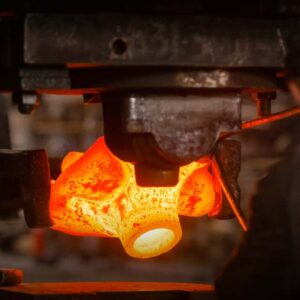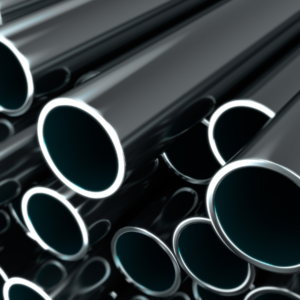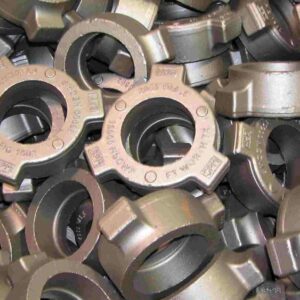Description
Custom Forgings for the Power Generation Industry
Introduction to Custom Forgings in the Power Generation Industry
The power generation industry is the backbone of modern infrastructure, responsible for generating electricity that powers homes, businesses, and industrial processes. In this highly demanding sector, reliability, durability, and efficiency of equipment are critical. Custom forgings play a crucial role in the manufacture of essential components used in power plants, including turbines, generators, compressors, and transformers. These forged parts are designed to withstand high-stress environments, extreme temperatures, and corrosion, ensuring optimal performance and long service life.
What Are Custom Forgings?
Custom forgings are metal components shaped through the process of forging, which involves applying compressive forces to heated metal billets. This manufacturing process improves the mechanical properties of the metal, resulting in enhanced strength, toughness, and resistance to fatigue. Custom forgings allow for the creation of parts tailored to the specific requirements of power generation systems, ensuring precision and high performance in critical applications.
Benefits of Custom Forgings in Power Generation Applications
- Enhanced Strength and Durability: Forging improves the structural integrity of metals, resulting in components that can withstand the high pressures and stresses encountered in power generation systems.
- Heat and Corrosion Resistance: Components used in power plants are often exposed to extreme temperatures and corrosive environments. Forged parts are available in materials that offer excellent heat resistance and protection against corrosion, ensuring long-term performance.
- Customizable for Specific Requirements: Custom forgings can be manufactured to meet the precise specifications required for turbines, generators, and other power plant components, ensuring compatibility and optimal performance.
- Fatigue Resistance: Power generation equipment often operates continuously. Forged components provide superior fatigue resistance, minimizing the risk of part failure and reducing downtime.
- Cost Efficiency: Although the initial investment in custom forged parts may be higher, their durability and long service life lead to reduced maintenance and replacement costs, making them a cost-effective solution for power generation facilities.
Key Applications of Custom Forgings in the Power Generation Industry
Custom forgings are used in various applications within the power generation sector, including:
- Turbine Components: Forged turbine blades, shafts, and rotors are critical for steam, gas, and hydro turbines, providing the strength needed to withstand high rotational speeds and thermal cycling.
- Generators: Forged parts like generator rotors and stator components ensure the efficient and reliable conversion of mechanical energy into electrical energy.
- Compressors: Forged components used in power plant compressors, such as casings and impellers, are designed to handle high-pressure gas flows and extreme operating conditions.
- Pumps and Valves: Forged pump housings, shafts, and valve components ensure reliable fluid handling and control in power plants, minimizing the risk of leaks and malfunctions.
- Transformers: Forged transformer cores and structural components provide the strength and durability required to support electrical current transformation, ensuring efficient power distribution.
- Boilers: Forged boiler components, such as tubes, headers, and flanges, are essential for maintaining the integrity of steam systems in power plants.
Common Materials Used in Custom Forgings for Power Generation
The power generation industry requires materials that offer superior strength, heat resistance, and corrosion resistance. Below is a table summarizing the materials commonly used in custom forgings for power generation applications:
| Material | Key Properties | Applications |
|---|---|---|
| Carbon Steel | High strength, cost-effective | Shafts, gears, valve components |
| Alloy Steel | Improved toughness, heat resistance | Turbine shafts, generator rotors, compressor parts |
| Stainless Steel | Corrosion resistance, heat resistance | Pump components, valves, boiler parts |
| Chromium-Molybdenum Steel | High-temperature strength, corrosion resistance | Turbine components, boiler tubes, valves |
| Nickel Alloys | Excellent heat and corrosion resistance | Gas turbines, high-temperature boiler parts |
Grades of Forged Materials for the Power Generation Industry
Here’s a table showing common grades of materials used in custom forgings for power generation, along with their key properties and applications:
| Grade | Material Type | Key Properties | Applications |
|---|---|---|---|
| AISI 4140 | Alloy Steel | High strength, toughness, heat resistance | Turbine shafts, generator rotors, compressor parts |
| AISI 1045 | Carbon Steel | Good machinability, moderate strength | Shafts, gears, valve components |
| AISI 4340 | Alloy Steel | High toughness, fatigue resistance | High-stress turbine components |
| 316 Stainless Steel | Stainless Steel | Corrosion and heat resistance | Pump parts, valves, boiler components |
| Inconel 718 | Nickel Alloy | High-temperature strength, corrosion resistance | Gas turbine components, high-temperature parts |
Why Choose Custom Forgings for the Power Generation Industry?
- Durability in Extreme Conditions: Power plants operate under extreme conditions, including high temperatures and pressures. Forged components are engineered to withstand these challenges, ensuring long-lasting performance and safety.
- Precision for Optimal Performance: Custom forgings offer precision manufacturing, ensuring that parts are tailored to meet the exact specifications of power generation equipment. This ensures better fit, reduced wear, and improved efficiency in power generation systems.
- Reliability and Safety: The integrity of power generation systems is critical for safety and operational efficiency. Forged components provide the reliability needed to minimize downtime, reduce the risk of equipment failure, and enhance overall safety.
- Energy Efficiency: High-quality forged components contribute to the efficient operation of power generation systems, reducing energy losses and enhancing the overall performance of turbines, generators, and compressors.






